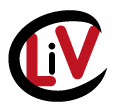Assistant Professor in Computational Linguistics (1.0 FTE)
( see: https://www.uu.nl/en/organisation/working-at-utrecht-university/jobs)
Function
The Department of Languages, Literature and Communication of Utrecht University invites applications from excellent candidates for a full-time appointment as Assistant Professor in Computational Linguistics/Natural Language Processing. The position starts August 1, 2018 and will be in the Linguistics section of the Department. The successful candidate will be affiliated as researcher with the Utrecht Institute of Linguistics UiL OTS, with most of the teaching done as part of the Artificial Intelligence programme (AI).
We are looking for candidates working in the field of Computational Linguistics, especially for candidates who specialize in models connecting statistical NLP with formal language theories of syntax and semantics. The candidate will be expected to make a substantial contribution to the AI teaching programme and to the computational linguistics research at the UiL OTS. Accordingly, proven expertise in both linguistic theories and in statistical NLP will be a strong advantage. A demonstrated interest in collaboration with industrial partners will also be considered as an advantage.
Your teaching obligations will be in the area of Natural Language Processing, Mathematical and Computational Linguistics and Language Technology. Additional teaching areas, depending on your expertise, may include Formal Linguistics, Artificial Grammar learning, Statistics, Machine Learning and Data Mining. You will primarily teach in the AI programme (bachelor and master), but also in the Bachelor programme of Linguistics and the Research Master Linguistics.
In due course you will be expected to fulfill some coordinating duties within the AI and Linguistics programmes and occasionally in the Department. Your research will be part of the Utrecht Institute of Linguistics OTS. For an Assistant Professor the standard teaching-research time division is 70% teaching and 30% research.
Profile
We require:
experience in teaching at the Bachelor and Master levels;
extensive research experience in Computational Linguistics/Natural Language Processing, proven by a finished PhD and publications at an internationally recognized level;
specialisation in statistical computational models that make use of formal language theories, or are used in psycholinguistic modelling;
experience with successful applications for external funding is recommended;
experience in a coordinating position is recommended;
good communication skills;
fluency in English;
University Teaching Qualification (Dutch Basiskwalificatie Onderwijs, BKO). Candidates lacking this qualification should be prepared to follow the BKO programme available within the Faculty.
Non-Dutch candidates are required to attain fluency in Dutch within two years of appointment.
Offer
We offer a temporary position (1.0 FTE) for two years. The position is tenure-track, meaning that, subject to a positive performance evaluation, the position will become permanent after two years. The gross salary – depending on previous qualifications and experience – ranges between €3,475 and €5,405 (scale 11/12 according to the Collective Labour Agreement Dutch Universities) gross per month for a full-time employment. Salaries are supplemented with a holiday bonus of 8 % and a year-end bonus of 8.3 % per year. We offer a pension scheme, (partly paid) parental leave, collective insurance schemes and flexible employment conditions (multiple choice model). More information is available at: working at Utrecht University.
About the organisation
A better future for everyone. This ambition motivates our scientists in executing their leading research and inspiring teaching. At Utrecht University, the various disciplines collaborate intensively towards major societal themes. Our focus is on Dynamics of Youth, Institutions for Open Societies, Life Sciences and Sustainability.
The Faculty of Humanities, with nearly 7,000 students and 900 staff members, offers an inspiring and dynamic working environment. Our research and education programmes focus on language, culture, history, arts, literature, media, philosophy and theology. Our strongest points are interdisciplinary and international collaboration, the excellent quality of research and education and the use of modern media. The research programmes are organised within four institutes:
Utrecht Institute of Linguistics OTS (UiL-OTS)
Research Institute for Cultural Inquiry (ICON)
Research Institute of Philosophy and Religious Studies (OFR)
Research Institute of History and Art History
De Utrecht University Graduate School of Humanities guarantees an outstanding quality of education for Research Master students as well as PhD students. The Faculty is divided into four Departments, which includes the Department of Languages, Literature and Communication (TLC). This Department provides Bachelor and Master programmes in the areas of Celtic, Dutch, English, French, German, Italian and Spanish language and culture, Linguistics, Literary Studies as well as Communication and Information Sciences and Artificial Intelligence. The research programmes in these areas are carried out under the supervision of either the Research Institute for Cultural Inquiry (ICON) or the Utrecht Institute of Linguistics (UiL OTS).
Further information
Are you interested? For further information contact Prof. Yoad Winter (y.winter@uu.nl).
Application
Applications should include:
a letter of motivation;
a curriculum vitae including contact and personal details;
the contact details of two referees (names, affiliations and phone numbers or e-mail addresses);
one selected publication.
The application deadline is 4 June 2018.
Interviews with selected candidates will take place in June. A trial lecture will constitute a part of the selection procedure. Employment will, preferably, become effective on September 1, 2018.
